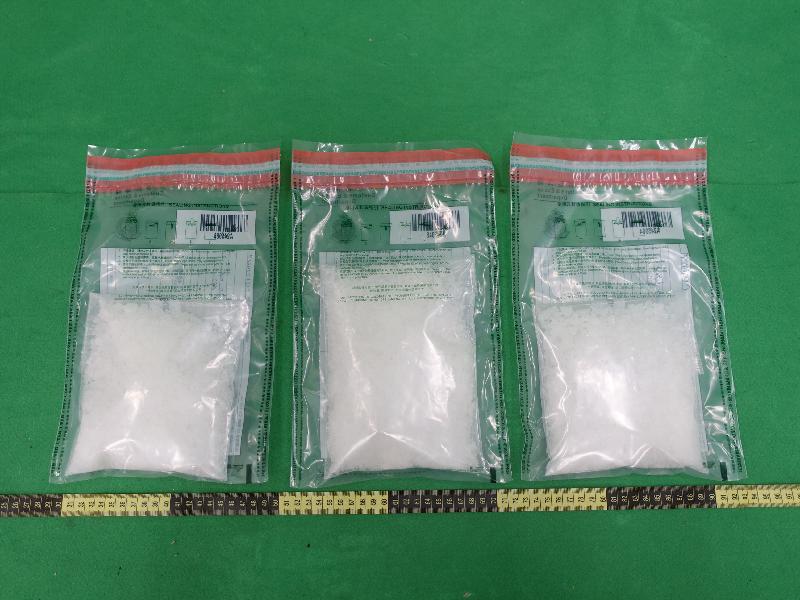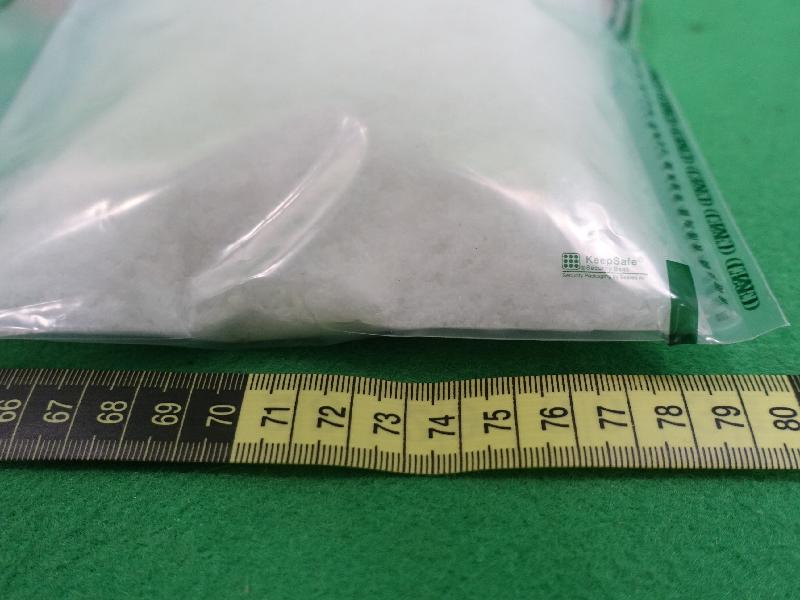The Centre for Health Protection (CHP) of the Department of Health is investigating this evening (June 28) a local case of Japanese encephalitis (JE) and again urged the public to avoid going to rural areas from dusk till dawn when the vector, which breeds in large water bodies such as rice paddies, is most active.
According to the patient’s family, the female patient, aged 63 with good past health, lives in Cheung Wah Estate, Fanling. She has presented with fever, vomiting and decreased general condition since June 21. She attended the Accident and Emergency Department of North District Hospital on June 23 and was admitted for management subsequently. She is now in a serious condition.
Her cerebrospinal fluid tested positive for immunoglobulin M (IgM) antibodies against JE upon laboratory testing.
Initial enquiries revealed that the patient had no travel history in the incubation period and had no exposure to farm and pig. Her local movements before onset were mainly from her residence to Cheung Wah Market in Fanling and Shek Wu Hui Market in Sheung Shui. Her home contacts have remained asymptomatic and have been put under medical surveillance. Investigations are ongoing.
“We are working with the Food and Environmental Hygiene Department (FEHD) to prevent any possible spread of infection. The FEHD and the Agriculture, Fisheries and Conservation Department have been informed for vector investigations, surveillance and control,” the spokesman said.
Officers of the CHP will conduct site visit and field investigations by questionnaire surveys at the patient’s residence for active case finding and arranging blood tests. A health talk will be held jointly with the FEHD at Cheung Wah Community Hall, Cheung Wah Estate, Fanling at 6.30pm tomorrow (June 29) to deliver health advice to residents and the public.
Persons who have been to the vicinity of Cheung Wah Estate or Cheung Wah Market in Fanling or Shek Wu Hui Market in Sheung Shui with JE symptoms should call the CHP’s hotline (2125 1122) operating from 9am to 5.45pm daily starting tomorrow for laboratory investigation or referral as appropriate.
The CHP will issue letters to local doctors and hospitals to alert them to the latest situation.
This is the first JE case recorded in 2019, which was locally acquired. No case was recorded in 2018 and five cases, which were all locally acquired, were recorded in 2017.
JE mainly occurs in the rural and agricultural areas of Asia and the Western Pacific. JE is principally transmitted by the bites of infected mosquitoes. The principal vector is called Culex tritaeniorhynchus. The mosquitoes breed where there is abundant water such as rice paddies and become infected by feeding on pigs and wild birds infected with the JE virus. The infected mosquitoes transmit the virus to humans and animals during biting. Symptoms usually start around four to 14 days after being infected.
To prevent JE, the public should take general measures to prevent mosquito bites and avoid going to rural areas from dusk till dawn when the mosquitoes spreading the virus are most active. Travellers to endemic areas should take special note.
The public should:
1. Wear loose, light-coloured, long-sleeved tops and trousers, and use DEET-containing insect repellent on exposed parts of the body and clothing;
2. Take additional preventive measures in outdoor activities:
- Avoid using fragrant cosmetics or skin care products;
- Re-apply insect repellents according to instructions;
3. Special notes during travel:
- If going to affected areas, arrange consultation with a doctor at least six weeks before travel, and have extra preventive measures to avoid mosquito bites;
- Vaccination is recommended for travellers who plan to stay one month or longer in endemic areas, particularly in rural areas, and for short-term (less than one month) travellers if they plan to have significant extensive outdoor or night-time exposure in rural areas during the transmission season of the disease;
- During travel in endemic rural areas, carry a portable bed net and apply permethrin (an insecticide) on it. Permethrin should not be applied to the skin. Seek medical attention promptly if feeling unwell; and
- Travellers feeling unwell, such as having fever, should seek medical advice promptly, and provide travel details to the doctor.
The public may visit the CHP’s
JE page,
tips for using insect repellents,
Facebook Page,
YouTube Channel and
Travel Health Service and the FEHD’s
Guidebook on Control and Prevention of Mosquito Breeding for more information.
read more



